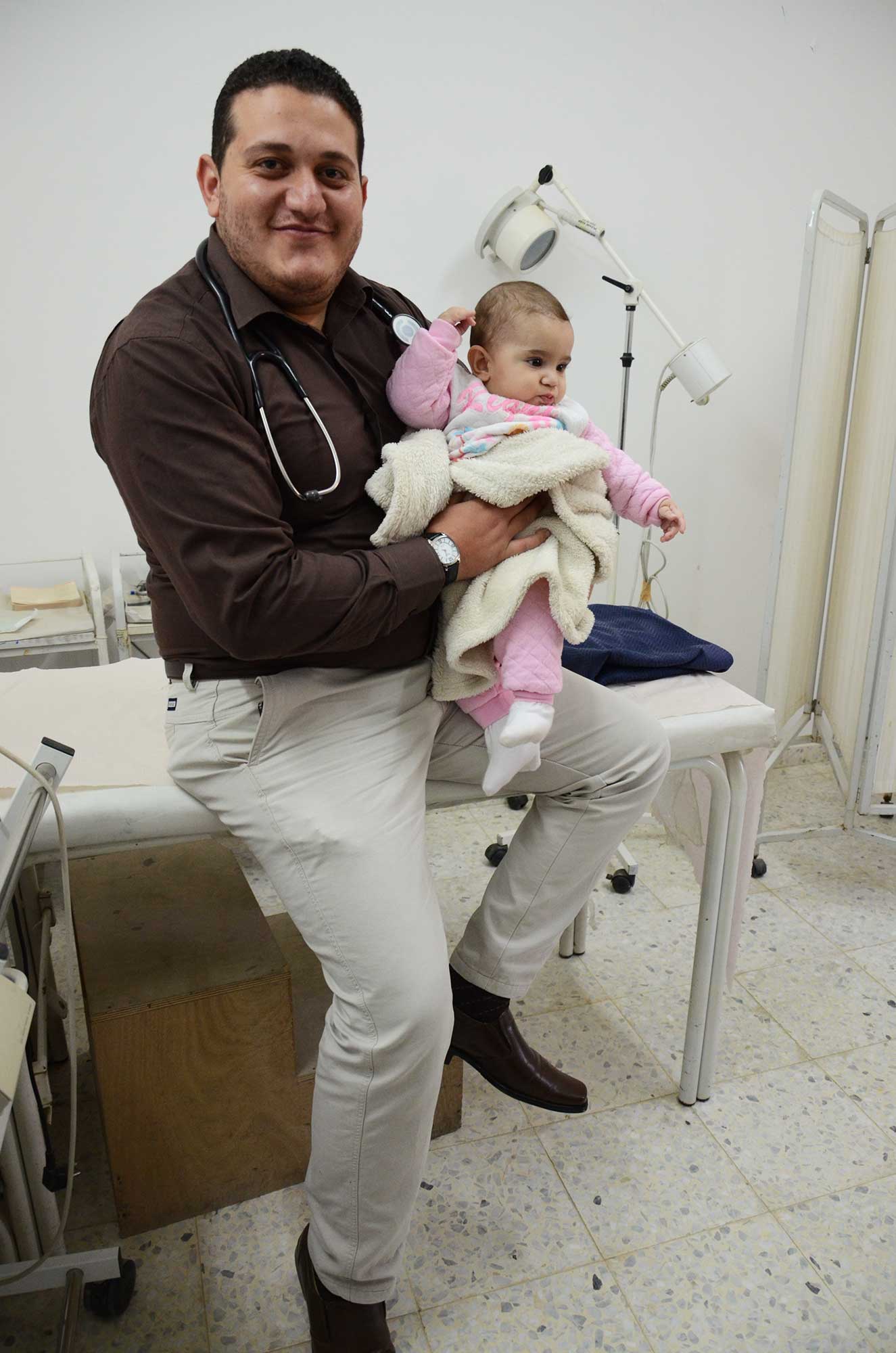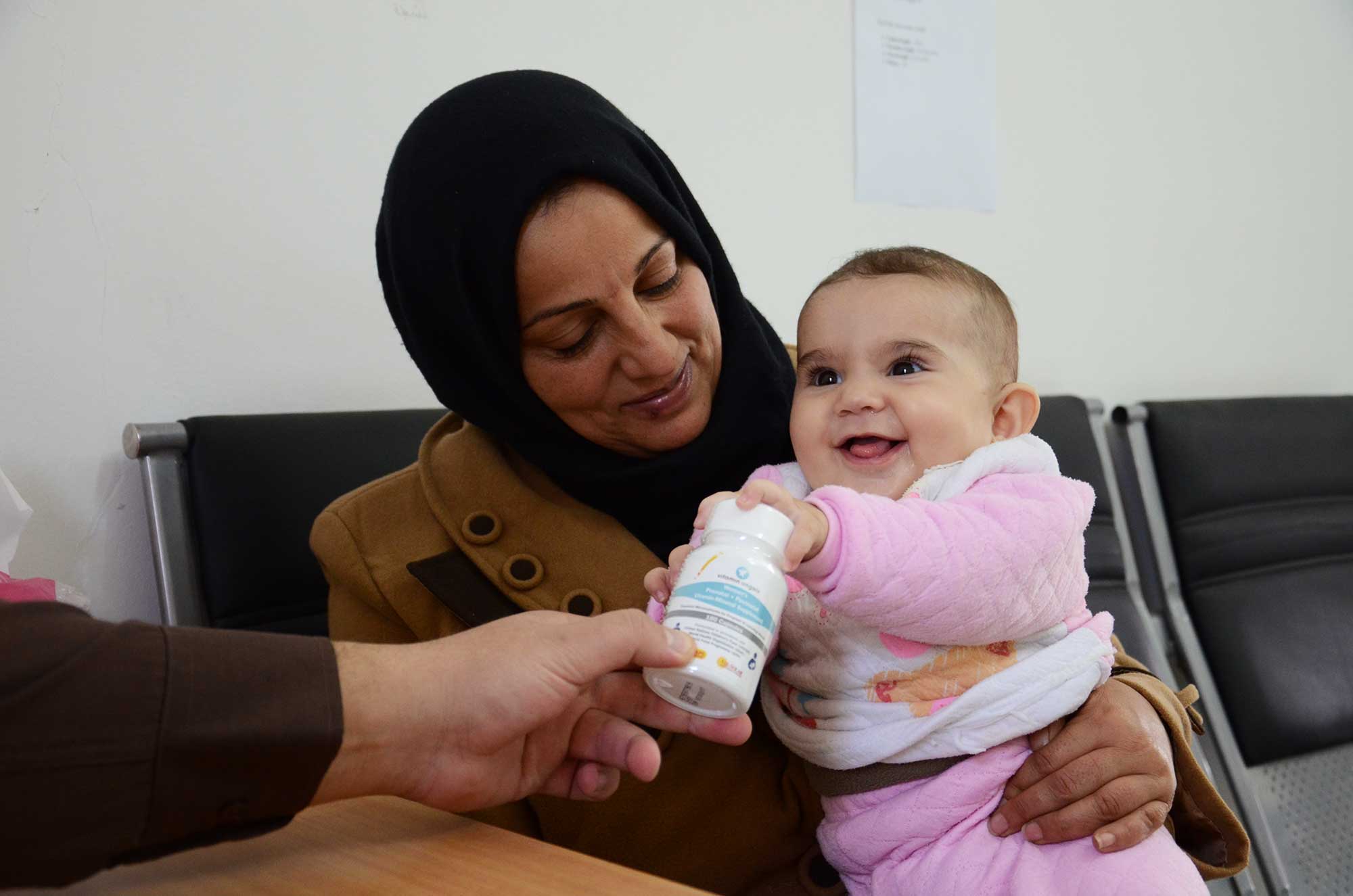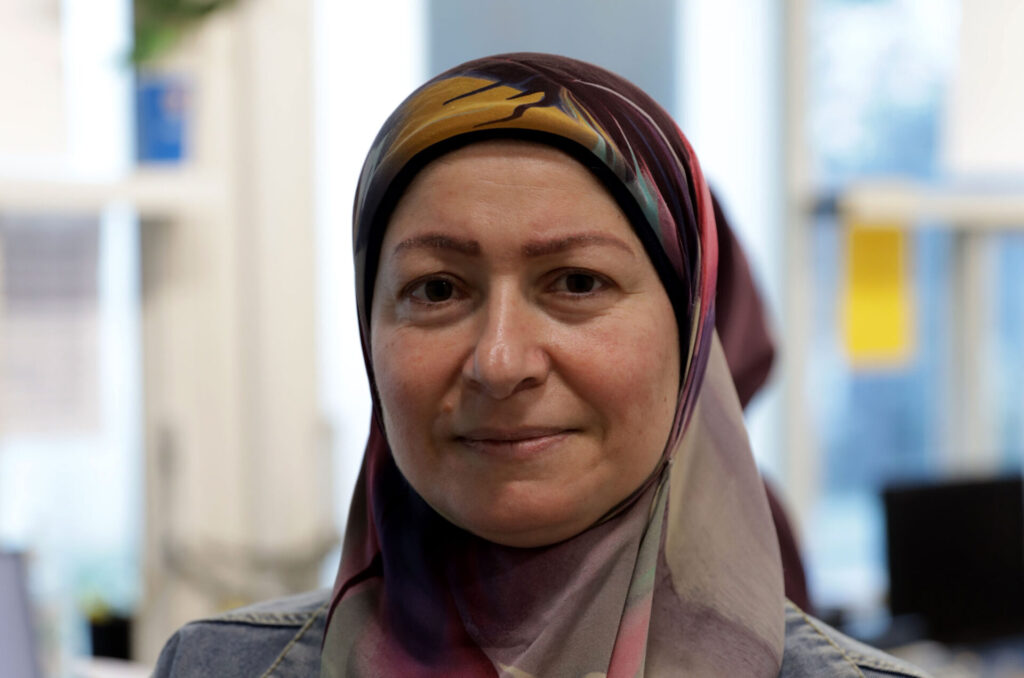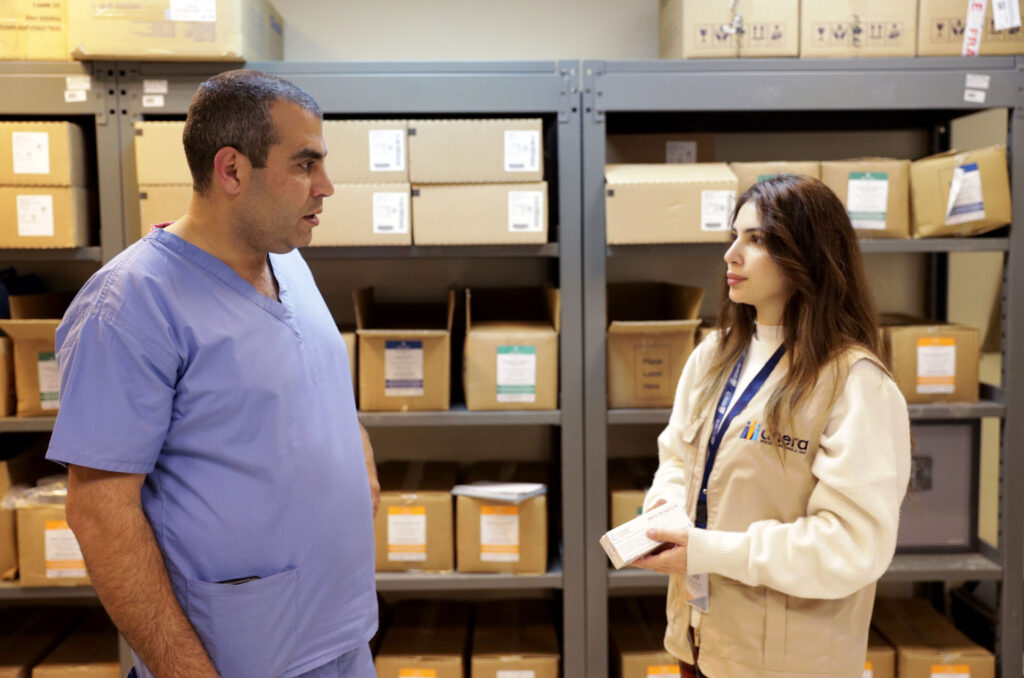Nov, 2015
In the village of Dar Salah, located about 4 miles east of the city of Bethlehem, there is only one medical facility that serves all 3,300 inhabitants.
The modest charitable medical center also opens its doors to patients from five nearby villages, and with its out-reach and health care services makes sure that the most vulnerable and secluded communities are also taken good care of.
Starting from a one-story building established in 2001 with limited service, the clinic has been able to gradually grow with help from friends like Anera. Vital medications and supplies donated by generous donors such as AmeriCares and Vitamin Angels are truly the propellers that keep such small, yet important, Palestinian clinics going and growing. Through Anera’s solid partnerships with highly reliable medical facilities, the medicines reach the most impoverished and vulnerable of communities at no cost at all.
Always having vital medications in stock alleviates some of the facilities’ financial burdens, allowing some room for possible self-development. The well-kept center in Dar Salah has now expanded into two floors housing a gynecology clinic, general physicians’ clinic, pediatric clinic, dental clinic, medical laboratory and storage room.
Prenatal Vitamins Help Women with Vitamin Deficiencies


Most recently, the doctors were delighted to receive a generous donation of multivitamins for pregnant and lactating women from AmeriCares. Each multivitamin bottle contains 180 capsules, and they are given to women for free. If patients were to obtain similar supplements, it would cost each patient over $10 a month; a heavy burden, especially for expecting mothers.
Over the past several years a common phenomenon of anemia has been observed in the population of Dar Salah, particularly among women. This has been attributed to bad nutritional habits, leading to vitamin and mineral deficiencies. Gynecology resident Anas Jawareesh explains just how important the donation is to mother and child health:
“We examine around 350 women a month, some of whom are pregnant, and the majority of them suffer from vitamin deficiencies and anemia. There is a constant need for multivitamins, especially because most of our patients come from extremely poor backgrounds — and donations like this one help us cover it.”
Gynecology resident Anas Jawareesh explains just how important the donation is to mother and child health: “We examine around 350 women a month, some of whom are pregnant, and the majority of them suffer from vitamin deficiencies and anemia. There is a constant need for multivitamins, especially because most of our patients come from extremely poor backgrounds — and donations like this one help us cover it.”
Fatigue, weak legs, headaches, nausea are familiar symptoms to many expecting mothers during the first three months of pregnancy, but Reem Dannoun had experienced these symptoms them even before she was expecting.
“I couldn’t just simply get up in the morning, and I found house chores to be physically draining. I felt exhausted all the time,” said 34-year-old housewife Reem. The symptoms increased during her pregnancy, and she soon learned from her doctor that she had low blood count and needed multivitamins to help her regain her strength. Luckily, the timely delivery from Anera was able to help her, as well as many expecting mothers like her.
Reem has two older children and a three-year-old girl. “My older son and daughter were my personal helpers around the house during my pregnancy. They knew I had no energy to do any work, so they would help each other with their homework and do some chores around the house to make things easier on me,” explained Reem with a proud smile.
A Healthy Child is Born, But Health Concerns Continue
Today, Reem visits Dr. Jawareesh with her new baby in her arms. Now 5 months old, Solin is a very healthy and playful little girl. Reem continues to benefit from the multivitamin donation, as she is determined to carry on with the natural breastfeeding for as long as she can, as advised by her doctor.
“Often, women, and mothers in particular, innocently neglect their own health trying to take care of everyone around them,” explained the doctor. “At the center, we always make sure women are reminded of their responsibility towards their own health as well.”


The medical staff at the center deeply believes in the power of public health education, launching several campaigns and delivering workshops to men and women alike in Dar Salah on topics that aim at developing the health of their community. According to Dr. Jawareesh, poverty remains a strong obstacle in the way of the community’s well-being and prosperity. “When a mother like Reem comes in with an obvious case of anemia, we know that poverty has played an important role in that.” With five mouths to feed, Reem’s husband who is a small greengrocer, barely makes enough money to take care of his growing family’s basic needs.
However; Reem and her husband are lucky to have a steady source of income at all, as unemployment in their village has reached an astounding 50%, according to a research conducted by the Applied Research Institute in Jerusalem in 2010.
“Not only do patients lack awareness,” continues Dr. Jawareesh. “They also lack the resources to provide a well-balanced diet for their families. Through your donations, be it multivitamins or antibiotics or chronic disease medications, we can take care of their health, allowing them to turn their attention to their own development and their kids’ future.”




